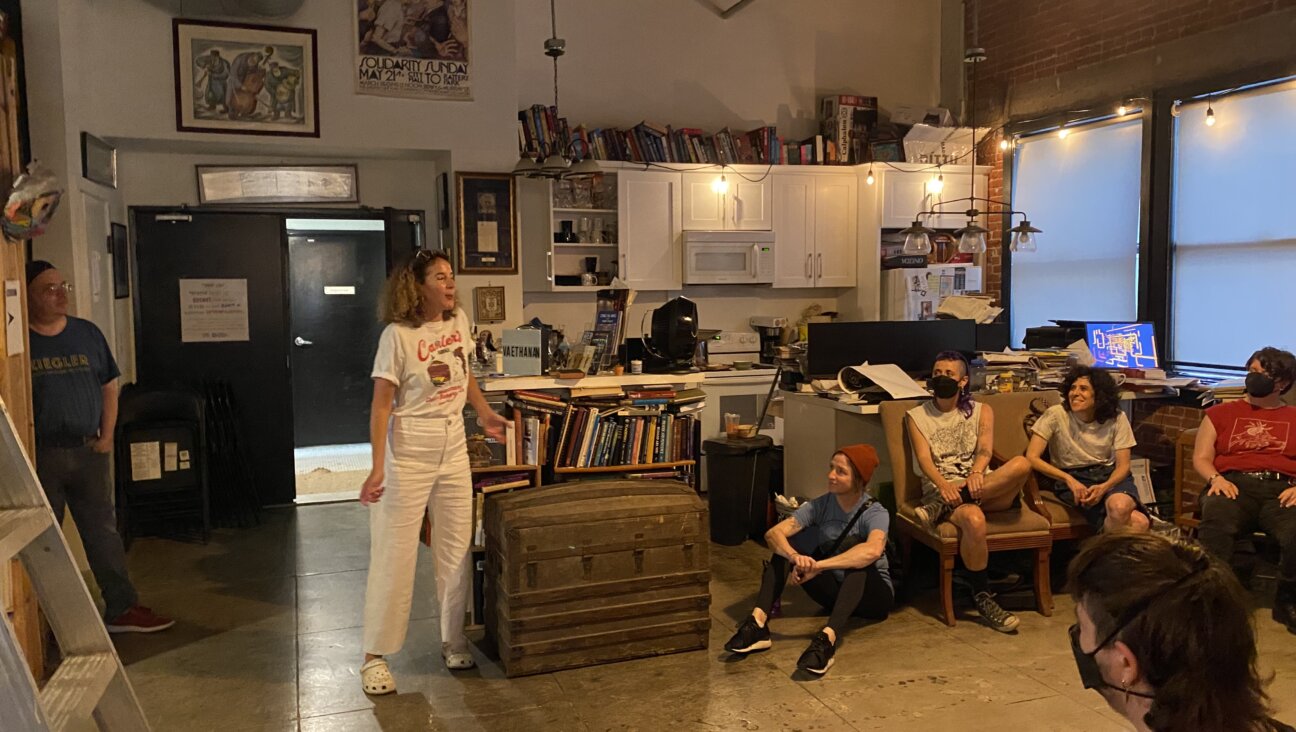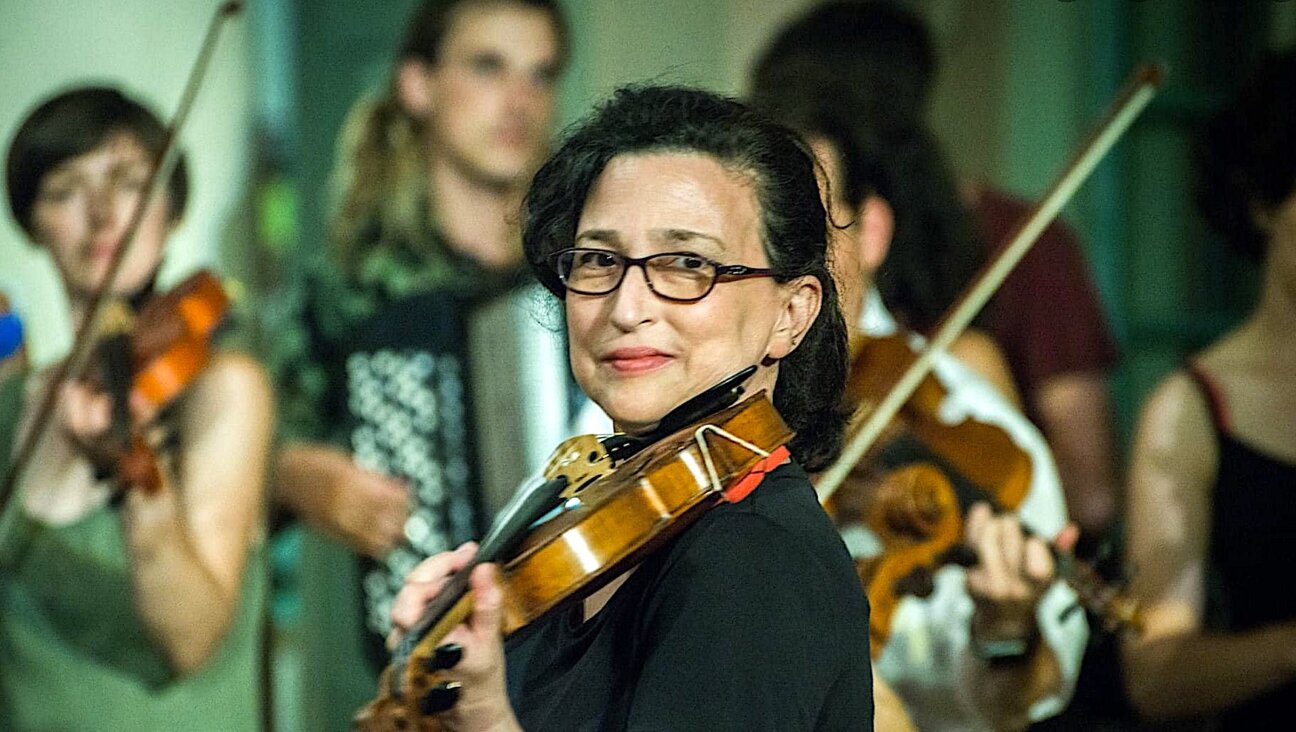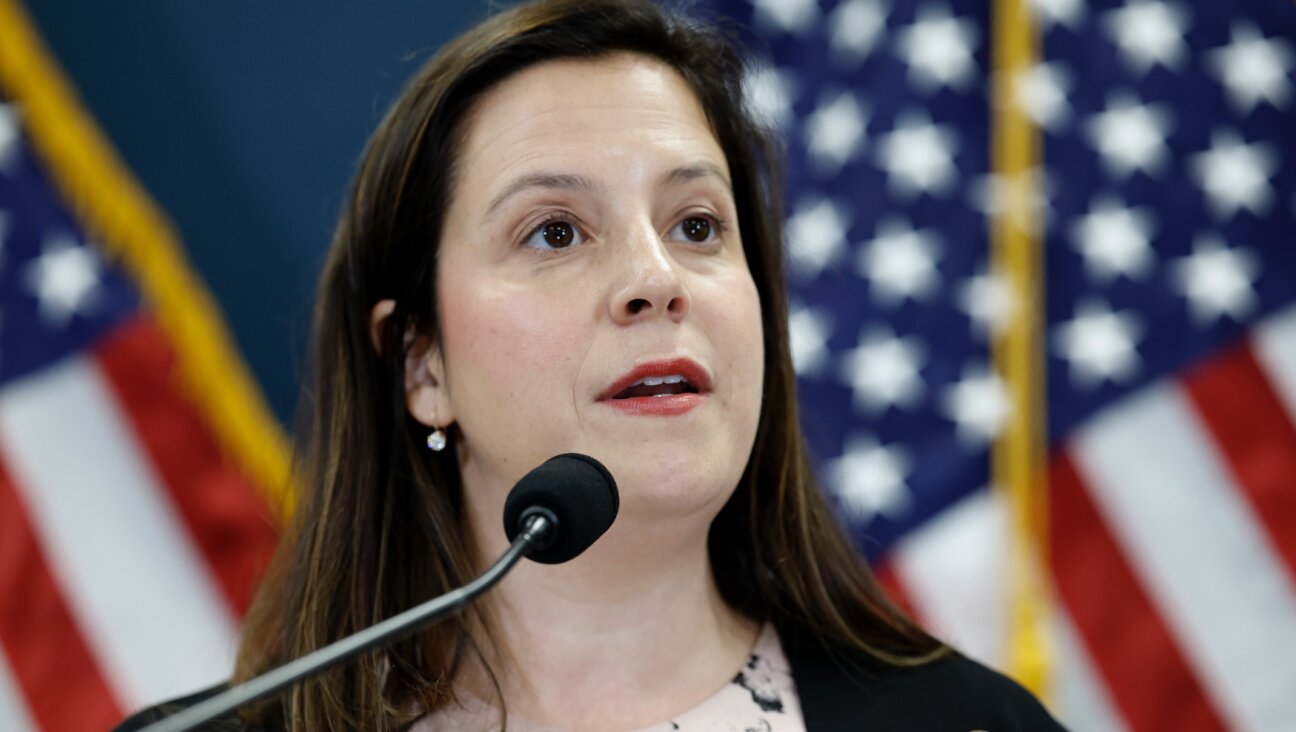Jewish advocacy groups working with private high schools on antisemitism
Since the war, education about Jew-hate is in high demand. But some say it does not fit neatly into existing diversity programs

Photo by Getty Images / monkeybusinessimages
Editor’s note: This article did not meet our editorial standards and should not have been published. The original version contained unsubstantiated, unattributed statements of opinion presented as facts, most of which have been removed. The article lacks the perspective of students, faculty or administrators of the schools being discussed, and includes simplistic critiques of the Diversity, Inclusion and Equity framework without adequate response.
We have removed the original byline because the responsibility lies with us as editors.
Some independent private schools have asked Jewish advocacy groups for help in combating antisemitism or educating students about Jews and Israel in the wake of the Israel-Hamas war.
Laura Shaw Frank of the American Jewish Committee said she has spoken to the leaders of diversity initiatives at 30 private schools, while Rachel Fish, who heads a Brandeis University initiative to counter antisemitism in higher education said she has fielded requests for guidance from schools in New York, New Jersey, Massachusetts and California.
Frank, director of the Jewish Life Department at the AJC, said she has done ‘dialogue across difference,’ programs, sometimes with Muslim leaders, and that one independent school in the Bronx held a Shabbat dinner with 600 people in December.
“To a one, they are open, curious and eager to educate properly in their school communities,” she said of the private school administrators she has worked with.
Shaw Frank said she had run into some challenges, such as when students at one New York school did social media reconnaissance on her before she visited.
“It was an AJC reply to a post by Black Lives Matter Chicago, which endorsed the Oct. 7 attack on Israel,” she told me. “Beneath a picture of the Hamas paraglider who invaded Israel by air, BLM wrote, ‘I Stand With Palestine.’ AJC responded by writing, “Fixed your disgusting graphic for you.’ It struck out BLM’s words and replaced them with ‘I Support Terror.’”
The students, Shaw Frank said, told the head of school, “‘You’re bringing in a person who says Palestinians are terrorists,’” and the head of school asked whether she would be willing to answer questions about the tweet at a school assembly. “Absolutely,” was Shaw Frank’s response. It ended up as a learning opportunity for her as well as the students.
“I talked openly about what the picture of the paraglider meant to me as a Jew who has family in Israel, and who has been devastated in the wake of 10/7,” Shaw Frank recalled, referring to the Hamas attack that killed about 1,200 people and kidnapped 240 others, sparking the war in Gaza.
“I realized how non-nuanced their thinking was,” she added of the students. “They didn’t know several paragliders had crossed over into Israel to participate in the murder, rape and kidnap of Israelis and others in their kibbutzim. They made what I think was a good-faith effort to understand why I found the BLM post offensive and why I retweeted AJC’s ‘fixed’ post.”
Fish, a special adviser on antisemitism to Brandeis’s president, said some secondary schools have seen an eruption of antisemitic vandalism or speech and anti-Zionist activism similar to what has unfolded on college campuses this fall.
“Sometimes the school has faced specific antisemitic incidents, including swastikas, graffiti-ed in bathroom stalls, chants to free Palestine, calls for death to Jews, and teachers who proclaim Israel an apartheid state,” Fish explained. “When schools calls us, it’s because they seek to create educational understanding and sensitivity.”
Fish, Shaw Frank and other experts said their mission can be challenging because of the complexity of deconstructing the history, psychology, sociology and culture of antisemitism, and because of the prevailing framework of Diversity, Equity and Inclusion initiatives.
“Jews are multiracial, multi-ethnic and multilingual,” Shaw Frank said. “And we’re not only a religion. We’re a tough sell to students and teachers who think in binary terms.”
Jonathan Sarna, a professor of American Jewish history at Brandeis, offered a broad critique of DEI, saying the “equity” plank is “deeply un-American.”
“A whole generation is being raised with the idea that if, say, African-Americans comprise 8% of the population, 8% should comprise school or corporate personnel,” Sarna asserted. “What happened to the American ideal of merit? Nobody would be foolish enough to say we should reduce the number of Black players in the Boston Celtics and add 50% women.”
He said the DEI paradigm lacks complexity, and that many young university professors have been shaped by it and developed an anti-Israel perspective.
“Seduced by DEI’s binary outlook, young people graduate from private schools without having studied the historical connection of the Jewish people to Israel, nor do they hear anything about the Jews who fled to Israel from Arab lands,” he said.
In short, he and others claimed, Jews are often viewed in the DEI universe as white oppressors who must be resisted — even violently, as manifested by the Hamas massacre on Oct. 7 of Israelis denounced as colonizers.
Ruth Wisse, a Harvard professor emerita of Yiddish and comparative literature, has written and lectured about what she sees as the Arab world’s mission to legitimize antisemitism by turning it into a political movement against the Jews.
“The real enemy in private schools and universities is the Arab and Muslim world, which rejects the idea of coexistence with Israel,” Wisse said in an interview. “The Arab-Muslim world has built its political life in opposition to Israel and its supporters. Call it antisemitism or anti-Zionism or Jew-hate, it’s all the same thing with the same goal: The destruction of the Jewish people in Israel and the Diaspora.”
Wisse said that DEI initiatives help supply the oxygen for radical Islamic Jew-hate.
“It’s very dangerous for us, the Jewish people, but it’s also extraordinarily dangerous for America,” Wisse said. “At its core, DEI insists on having an equal outcome for everybody when in fact what we want to promote is equal opportunity. All of these grievance groups marching behind the Hamas terror organization want to see the destruction of America and this fundamental American value.”
Chester Finn, president emeritus of the Thomas B. Fordham Foundation, an education policy think tank, said it was too soon to tell whether the private school efforts would be effective.
“We need to see evidence that the guidance administrators seek is making its way into the classroom in a useful way,” he said. “As for DEI, it’s a divisive issue this country doesn’t need more of, and it’s a distraction from the literature, history, geography and civics that schools ought to be teaching.”
Fish said she is motivated by her own family.
“The support for antisemitism we’ve seen, especially since Oct. 7, cannot be the world my children inherit,” she explained. “I will keep at this work. For me it is a calling and I will continue to serve.”
Correction: An earlier version of this story mischaracterized the congressional testimony the presidents of Harvard, MIT and the University of Pennsylvania gave. They said that whether or not calls for Jewish genocide would violate school policy depends on context, not that such calls would not violate school policy.
A message from our Publisher & CEO Rachel Fishman Feddersen

I hope you appreciated this article. Before you go, I’d like to ask you to please support the Forward’s award-winning, nonprofit journalism during this critical time.
At a time when other newsrooms are closing or cutting back, the Forward has removed its paywall and invested additional resources to report on the ground from Israel and around the U.S. on the impact of the war, rising antisemitism and polarized discourse.
Readers like you make it all possible. Support our work by becoming a Forward Member and connect with our journalism and your community.
— Rachel Fishman Feddersen, Publisher and CEO
























